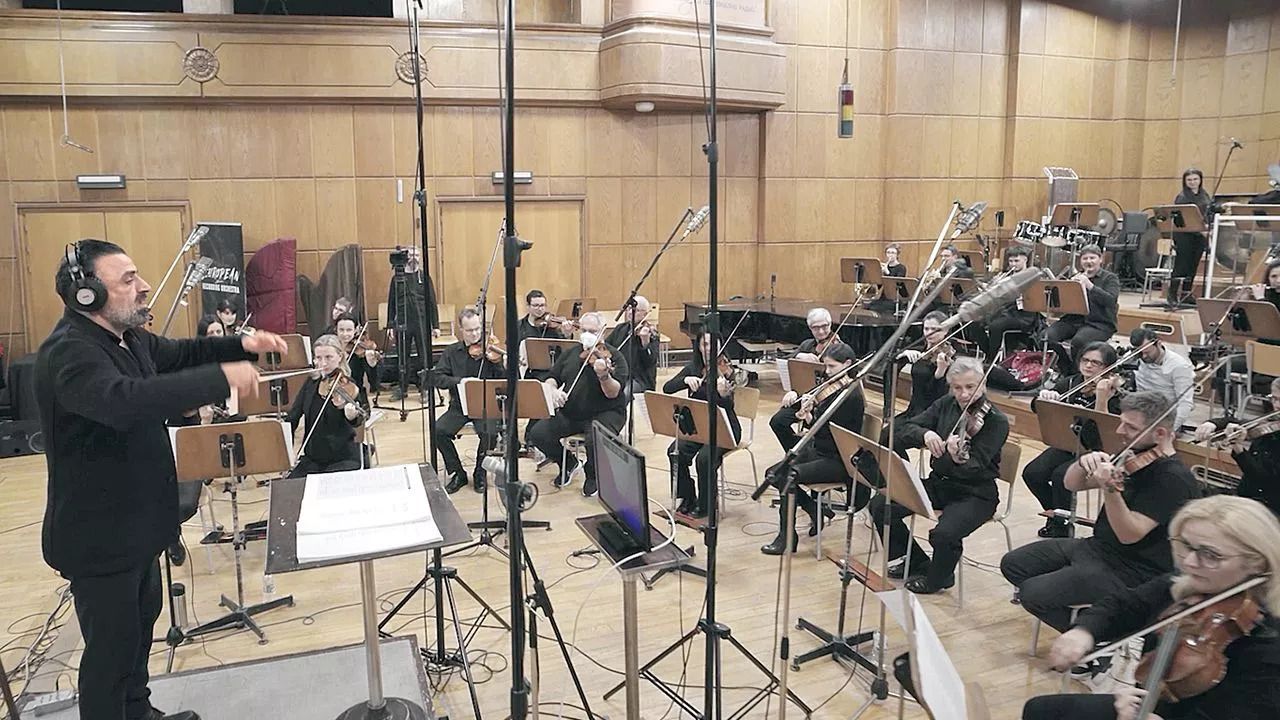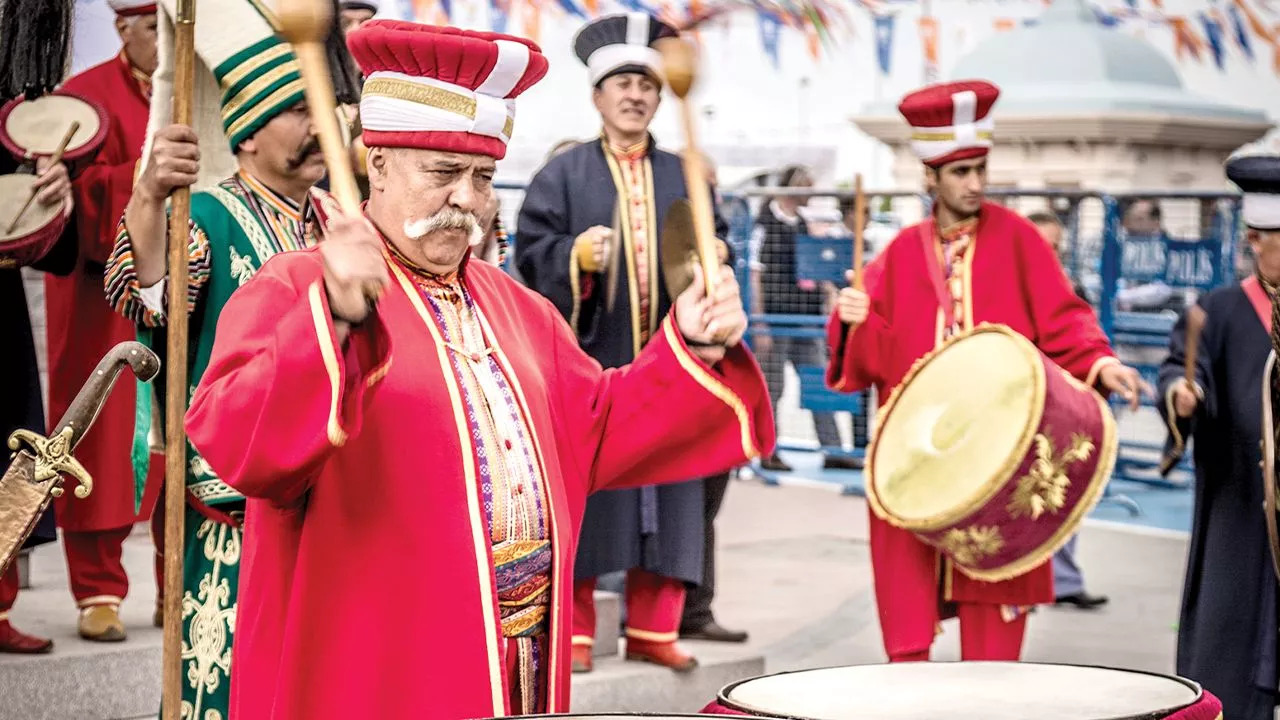Anatolia Flarmoni reimagines 'mehter' with hollywood flair
The Anatolia Flarmoni Symphony Orchestra has revived the Mehter military band in a symphonic and Hollywood-like style, incorporating musicians from Hollywood movies and recording new compositions

EXCLUSIVE BY MURAT OZTEKIN — "Mehter," the heart-stirring military band of the Ottoman Empire, has been a source of inspiration for Western music throughout history, and many composers have included traces of it in their works. Now, mehter is being reborn in a symphonic and Hollywood-like style.
Anatolia Flarmoni Symphony Orchestra has added a different and somewhat contrary dimension to mehter. Composed and interpreted in a new form as the music of the "Warriors of Peace," the recording team included musicians from Hollywood movies. The orchestra completed the new generation mehteran recordings, including "Ceddin Deden" and six new compositions, in Bulgaria.
The project was supported by Orion Productions, with Ayhan Ozel as the music director and Ozel and Tolga Tumozen as the arrangers. We talked to Ayhan Ozel and discussed how well the new style suits the spirit of the Mehter.
Mehter has always undergone changes
How did "Warriors of Peace," inspired by traditional Turkish military music, come about?
Mehter music has a long history with evolving styles. Among the Central Asian Turks, the earliest form of Mehter was simply drumming. Later, during the Seljuk dynasty, a mystical element was incorporated into the music.
In the last period of the Ottoman Empire, mehterhane was abolished after Mahmud II and replaced by Western-style military bands. This shift limited our knowledge of earlier mehter music. The mehter we hear today emerged during a revival period that began in 1914. In other words, mehtar has always been changing and evolving. So we are now embarking on creating a new generation of mehter music.
How exactly do you perform Symphonic mehter?
The new generation of mehter was born to create a brand and cultural ambassadorship for Türkiye. There is no mehteran in our team. We performed mehter pieces with a symphonic orchestra in the Western style. In fact, we wanted to create works suitable for the 21st-century frequency. In addition to works such as "Ceddin Deden" and "Cirpinirdi Karadeniz," we also made new compositions that are completely symphonic and about people.

How does your symphonic mehter experiment differ from previous attempts?
Traditionally, attempts to blend mehter music with symphonic music haven't been very successful. These efforts typically involve a symphony playing first, followed by the mehteran joining in, and then the symphony returning. They never truly play together at the same time. There are technical reasons why this approach doesn't work well.
We've taken a different approach. We use modern instruments to perform pieces that combine the styles of classical symphonies and Hollywood movie soundtracks. To achieve this unique sound, we collaborated with experienced film score composers. For example, Vladislav Boyadzhiev, who has worked with legendary artists like Ennio Morricone and Sinead O'Connor, was part of our team.
We changed the form, not the texture
Do you think it was necessary or valuable to merge the deeply rooted historical works of mehter music with Hollywood's musical aesthetics?
Today's audiences tend to gravitate toward the kind of music found in Hollywood scores. To truly connect with a global audience, music needs to be crafted with a deep understanding of melody and harmony – a kind of "musical math" if you will. This is what we've focused on achieving. That's what we have worked toward while keeping the texture intact. I was not in favor of changing the texture, so only the form has changed.
Did you find the integration of modern instruments challenging?
Traditionally, opera singers rely on a simpler system for reading music. We introduced a more complex, mathematically-based notation for the vocal parts. Nevertheless, I think we succeeded.






